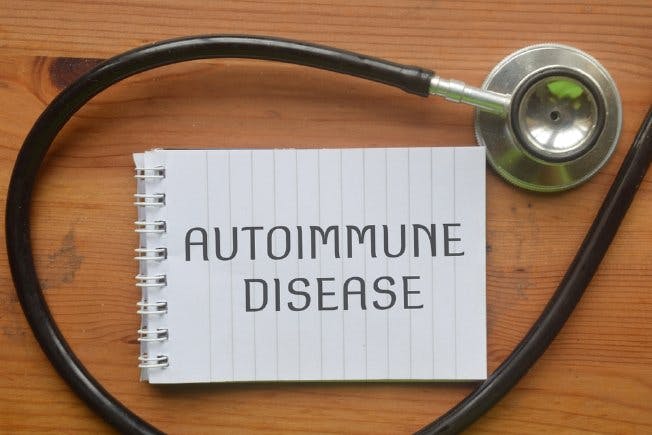Types of Immune System Disorder to Look Out for
Published | 4 min read
Knowing the signs and symptoms of several immune system disorders is crucial for early detection and management. Arm yourself with this knowledge, including causes, effects, and how they impact overall health, in this article.
The immune system serves as your body’s defense against bacteria, viruses, and other harmful invaders. When your immune system does not function the way it should, you may have an immune system disorder.
There are four main categories of immune system disorders: Primary Immune Deficiency, Acquired Immune Deficiency, Overactive Immune System, and Autoimmune Disease. In the following sections, we’ll delve into each of these conditions to provide a clearer understanding of their characteristics and impacts.
Primary Immune Deficiency
Primary Immune Deficiency is a disorder which has been present since birth, making this a congenital disease.
A good example of a Primary Immune Deficiency is Severe Combined Immunodeficiency (SCID). Children who are born with SCID do not have white blood cells, making their bodies vulnerable to microbes and other disease-causing agents.
Dubbed as the ‘bubble boy disease’ in the 1970s after a young boy lived in a sterile plastic bubble to shield him from environmental risks, SCID is a condition that can be fatal within the first two years of life without immune-restoring treatments. The most common treatment for SCID is a stem cell transplant, which involves transplanting bone marrow cells from a healthy person to the child.
Acquired Immune Deficiency
Acquired Immune Deficiency develops after you contract a disease or are subjected to a form of treatment which weakens your immune system.
For example, certain medicines can weaken the immune system, such as in cancer patients who are undergoing chemotherapy. It can also occur in organ transplant patients who are taking medicines to prevent organ rejection.
Perhaps the best example of an Acquired Immune Deficiency is Acquired Immunodeficiency Syndrome (AIDS). Human Immunodeficiency Virus (HIV), the virus which causes AIDS, attacks the body’s immune system, weakening it. The result is that patients with HIV/AIDS become seriously ill from infections which normal individuals can fight off easily.

Overactive Immune System
Having certain genes predisposes your immune system to overreact to substances – called allergens – in your environment. Allergies are the most common example of an overactive immune system. Examples of allergens include pollen, dust, pet dander, molds, and certain foods (such as shellfish and crustaceans).
There are other conditions characterized by an overactive immune system. One of them is asthma, wherein the symptoms include coughing, wheezing, and difficulty of breathing. The triggers of asthma can range from dust or pollen to tobacco smoke.
Another condition is eczema, wherein the allergen causes a very itchy rash to develop on the skin.
An overactive immune system can also cause allergic rhinitis. This medical condition is characterized by sneezing, runny nose, sniffling, and swelling of the nasal passages. Allergic rhinitis is caused by exposure to indoor allergens, such as dust and pet dander, and outdoor allergens, like molds and pollens.

Autoimmune Disease
In autoimmune disease, the immune system turns against the body and attacks normal, healthy cells. So far, the cause is unknown. It is theorized that a certain combination of genes is triggered by allergens in the environment.
There are three common autoimmune diseases.
The first is Type 1 Diabetes – an autoimmune disorder where the immune system attacks the pancreas’ insulin-producing cells. Insulin is vital for moving glucose from the blood into cells for energy. Lack of insulin causes glucose to build up in the blood, resulting in high blood sugar levels. This build-up of glucose in the blood can cause a range of acute and long-term health problems, including damage to the eyes, kidneys, and nerves, as well as an increased risk for heart disease and stroke.
The second condition is Rheumatoid Arthritis (RA). RA is caused by an auto-antibody called “rheumatoid factor”, which is found in the blood of afflicted people. This leads to swelling and deformities in the joints of the hands, knees, and wrists.
The third condition is Systemic Lupus Erythematosus (SLE). This disease attacks a variety of tissues, including the skin, lungs, and kidneys. The blood of a patient with SLE presents with many types of auto-antibodies. SLE can cause mild symptoms, such as the characteristic “butterfly rash” on the face, or severe complications, such as heart problems.
Conclusion
Diagnosis of immune system disorders can be difficult. In some cases, the symptoms can be subtle, or appear and disappear with time. Some disorders may even have similar or overlapping symptoms. In addition, there is no single test which can identify the type of disorder you have.
To arrive at a diagnosis, the doctor examines your medical history, your symptoms, physical exam, and related blood tests. Most of the time, these disorders can be diagnosed after ruling out all other potential causes.
If you suspect that you have an immune system disorder, schedule a visit with your doctor who will do a thorough assessment of your medical condition.
References
- Johns Hopkins. Disorders of the Immune System. [Last accessed March 12, 2024]
- Very Well Health. Immune System Disorders and Diseases. [Last accessed March 12, 2024]
Share this article on

